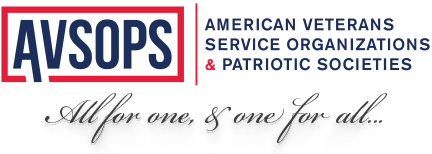Transitioning Out of the Military: A Guide for US Veterans
After serving in the United States military, transitioning into civilian life can seem daunting. But with the right tools, resources, and guidance, veterans can navigate this change successfully. This AVSOPs Section aims to inform US veterans about their options as they transition out of military service and into the private sector. It outlines the steps to take, resources available, and strategies for making this shift as smooth as possible.
Planning Ahead: Steps to Take Before You Leave the Military:
-
1. Start Early: Begin planning your transition at least a year in advance. This will give you sufficient time to prepare for civilian life both mentally and practically.
-
2. Career Assessment: Evaluate your skills, experience, and interests to identify potential career paths. Tools like the Department of Labor’s O*NET Military Crosswalk can help translate your military skills to civilian jobs.
-
3. Education and Training: Consider furthering your education or training to broaden your job opportunities. The GI Bill can help fund your schooling.
-
4. Financial Planning: Meet with a financial advisor to plan your post-military budget, understand your military benefits, and prepare for civilian expenses.
Resources Available to Veterans:
-
1. Transition Assistance Program (TAP): TAP provides information, tools, and training to ensure service members can successfully move from military to civilian life. It offers workshops on job search techniques, resume writing, and interview skills. Link: https://www.dol.gov/agencies/vets/programs/tap
-
2. American Corporate Partners (ACP): ACP connects US veterans to business professionals for year-long mentorships. Link: https://www.acp-usa.org/
-
3. Veterans’ Employment and Training Service (VETS): VETS assists veterans with job training, employment accommodations, resume guidance, and job search activities. Link: https://www.dol.gov/agencies/vets
-
4. Hiring Our Heroes: This U.S. Chamber of Commerce Foundation initiative helps veterans, transitioning service members, and military spouses find meaningful employment opportunities. Link: https://www.hiringourheroes.org/
-
5. VA’s Vocational Rehabilitation and Employment (VR&E): VR&E helps veterans with service-connected disabilities to prepare for, obtain, and maintain suitable employment. Link: https://www.benefits.va.gov/vocrehab/
| Resource | Description | Link |
|---|---|---|
| Transition Assistance Program (TAP) | Provides information, tools, and training to ensure service members can successfully move from military to civilian life. | Visit Website |
| American Corporate Partners (ACP) | Connects US veterans to business professionals for year-long mentorships. | Visit Website |
| Veterans’ Employment and Training Service (VETS) | Assists veterans with job training, employment accommodations, resume guidance, and job search activities. | Visit Website |
| Hiring Our Heroes | An initiative of the U.S. Chamber of Commerce Foundation that helps veterans find meaningful employment opportunities. | Visit Website |
| VA’s Vocational Rehabilitation and Employment (VR&E) | Helps veterans with service-connected disabilities to prepare for, obtain, and maintain suitable employment. | Visit Website |
Making the Transition: Strategies for Success:
-
1. Network: Networking is essential in the private sector. Leverage platforms like LinkedIn and attend job fairs and networking events to meet potential employers and fellow veterans who have made the transition.
-
2. Tailor Your Resume: Civilian employers may not understand military jargon. Translate your skills, training, and experience into civilian language on your resume. Consider hiring a professional resume writer who specializes in military-to-civilian resumes.
-
3. Practice Interviews: Practice answering common interview questions and explaining your military experiences in a way civilian employers will understand.
-
4. Job Searching: Use job search engines like Indeed, Monster, and special veteran job boards like VetJobs and Military.com’s Veteran Employment Center. Also, remember to take advantage of the Veterans’ Preference for federal jobs.
-
5. Mental Health: Transitioning can be challenging. Seek help if you’re feeling anxious or depressed. Many organizations, like the VA and Military OneSource, provide mental health resources for veterans.
Conclusion:
While transitioning from the military to the private sector can be a significant adjustment, many resources and support systems are available to help US veterans make the shift. Begin planning your transition early, take advantage of the many resources at your disposal, and don’t hesitate to reach out for help.
As a veteran, your skills, discipline, and work ethic are highly valuable.
With the right preparation, you can find a fulfilling career in the civilian world. Remember, transitioning is a process. Be patient with yourself, stay motivated, and remain optimistic about this next chapter of your life.

